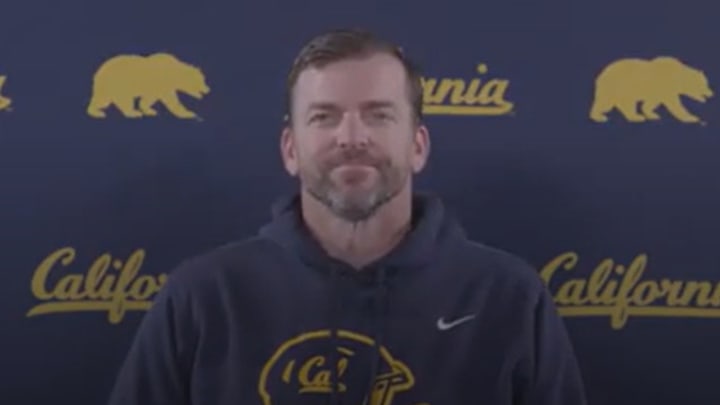Cal Will Use In-Helmet Communication for Play-Calling This Spring and Next Season

Cal quarterbacks Fernando Mendoza and Chandler Rogers will no longer have to look to the sidelines for a play call relayed to them through a series of hand signals. They will simply be told the play call through an audio system in their helmets. And they will start getting used to the new communication system in spring practice, which begins Monday.
In response to allegations of teams stealing signals in 2023, the NCAA rules committee recommended the use of the communication used in the NFL, in which a play-caller on the coaching staff will talk through a microphone to communicate the play to the quarterbacks, who will have an audio receiver in his helmet. Recommendations by the rules committee are virtually always approved by the NCAA, and Cal head coach Justin Wilcox confirmed on Friday that Cal will start to get used to the new system this spring.
“We’ll practice it in the spring, and implement it again in the fall,” Wilcox said in the video atop this story.
He explained that one offensive player – always the quarterback – and one defensive player will be designated to receive the play call up until the play clock reaches 15 seconds or the ball is snapped.
Veteran Cal safety Craig Woodson figures he might be the defensive player assigned to receive signals through his helmet since he had that role when the in-helmet signaling was used during Cal’s bowl game this past season.
“It was good during the bowl game,” he said. “I really liked it.”
And Woodson likes the fact that Cal will be using it during the spring and the 2024 season, which will be the Bears’ first season in the ACC.
“That would be really good just to have that in the spring,” he said Friday, “because obviously we don’t have to look to the sideline for the call or just be unfocused when it comes to – the offense comes out, we can see the formation, and we can take in our keys, our reads, before having to look to the sidelines to get the call. It’s allowing us to play one step ahead.”
Woodson discusses the in-helmet signaling system about 2:20 into the video below:
The key player in this system is the quarterback. The play clock in most situations in college football is 40 seconds, and Cal’s offensive play-caller – presumably offensive coordinator Mike Bloesch – would have the option of calling a play quickly, then talking to Mendoza or Rogers about what he sees until communication is cut off with 15 seconds left on the play clock.
Cal defensive coordinator Peter Sirmon presumably would be communicating the defensive play to a defensive player, although Wilcox presumably would have some say on the defensive side.
Follow Cal Sports Report on Twitter: @jakecurtis53
Find Cal Sports Report on Facebook by going to https://www.facebook.com/si.calsportsreport
